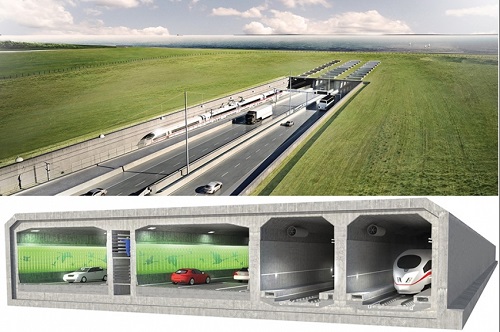 Wednesday, April 24, 2024
Wednesday, April 24, 2024  Wednesday, April 24, 2024
Wednesday, April 24, 2024 
RepublicWorld.com reports that while the world is grappling to contain the deadly Coronavirus, Denmark on April 24 reportedly announced the construction of the world’s longest submerged tunnel to Germany. According to an international media outlet, the project which was supposed to start by mid-2020, will now begin on January 1 next year due to the unprecedented pandemic.
While speaking to an international media outlet, the Ministry of Transport and Housing said that the work on the Fehmarnbelt, link of 10 minutes or less for cars and trains, would begin on the Danish island of Lolland. The ministry informed that the underwater tunnel, which will almost be 18 kilometres in length, will link the Danish region of Lolland-Falster with Schleswig-Holstein in Germany.
Danish transport minister, Benny Engelbrecht reportedly said that the Fehmarnbelt link will be a new gateway to Europe and a new gateway for future green transport solutions. As per reports, the new underwater tunnel won’t be anything like the Channel Tunnel under the English Channel and Japan’s Seikan Tunnel under the Tsugaru Strait. The authorities said that the Fehmarnbelt will not lie under the seabed.
Instead, the tunnel is planned to be constructed in hollow concrete sections that are to be submerged and place in a trench dug into the Baltic Seafloor. The ministry in a statement said that the consortium in charge of the project had planned to start construction in mid-2020, but ‘among other things’ because of the pandemic it had not proved possible.
The tunnel is expected to be operational by mid-2029 and will be linking German and Danish regions in 10 minutes by car and seven minutes by train. usually, the ferry takes an hour to cover the distance. The new project will also replace the 160-kilometre detour that one has to take through the Danish region of Jutland to reach Germany. However, as per reports, on the German side, the launch of work still awaits a court decision to validate approval given by authorities.
Check out the video gallery here